|
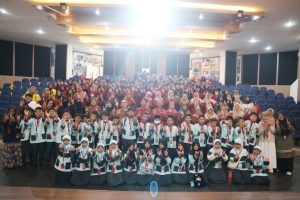
The Department of Biology
Faculty of Mathematics and Natural Sciences Universitas Indonesia
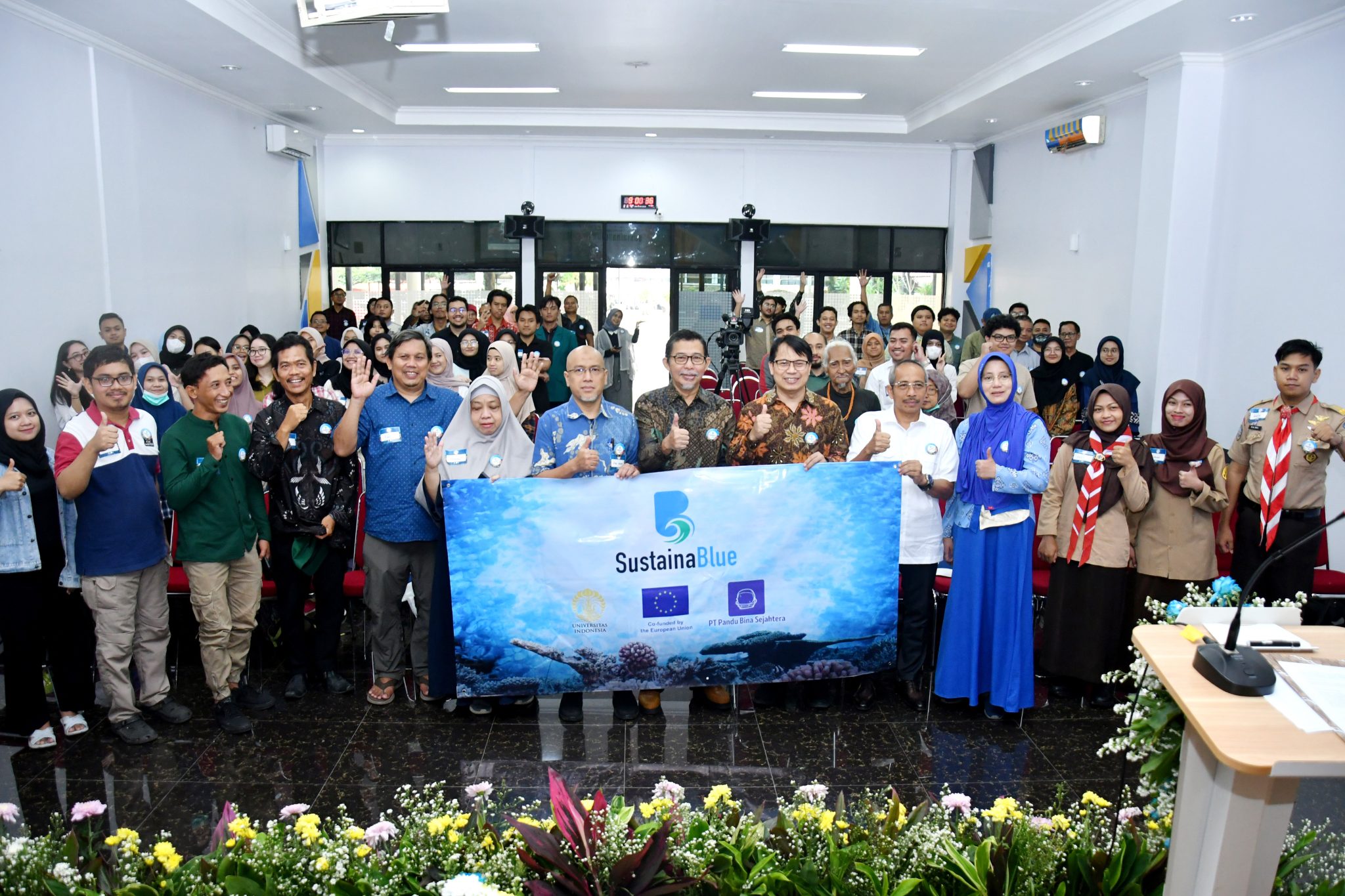
Indonesia is one of the countries with great potential as a maritime nation, with a coastline stretching 95,181 km. Unfortunately, this maritime potential faces a range of complex challenges that remain unresolved to this day. These issues include a lack of awareness in preserving marine ecosystems, a population growth rate that is not matched by economic growth, and the limited capacity of local coastal communities to produce diversified marine-based products.
Overall, resolving maritime issues in Indonesia requires strong cross-sector collaboration between the government, academia, civil society, industry, and the media. In addition, a sustained commitment is needed to wisely preserve and manage marine resources for the long-term welfare of the Indonesian nation.
Against this backdrop, the Faculty of Mathematics and Natural Sciences at Universitas Indonesia (FMIPA UI), through the Department of Biology, has taken the initiative to actively promote long-term sustainability programs, one of which is by launching the SustainaBlue program on Tuesday (June 11, 2024), at the Prof. Dr. G.A. Siwabessy Auditorium, FMIPA UI, Depok.
SustainaBlue is a collaborative Indonesia–Malaysia program funded by the European Union, involving several universities from Indonesia and Malaysia, namely Universitas Indonesia, Institut Teknologi Sepuluh Nopember, Universiti Malaysia Terengganu, Universiti Sains Malaysia, the University of the Aegean, and the University of Cyprus. The program also engages institutions working in the fields of environment, conservation, and socio-economic development, including Symplexis, AEGEANrebreath, University of Cyprus, CSI Center for Social Innovation Ltd., Malaysia Aquaculture Development Association, and PT. Pandu Bina Sejahtera.
The focus of the event titled “Urgency and Empowerment in a Maritime Country” is centered on enhancing the role of higher education institutions in Indonesia and Malaysia in supporting environmental sustainability.
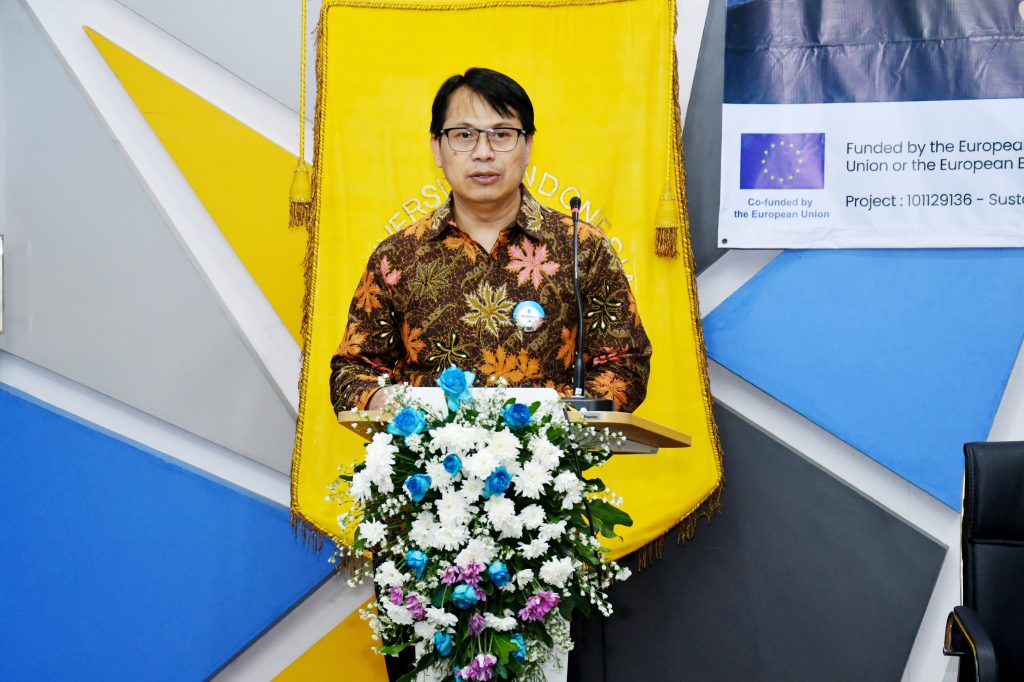
Prof. Dede Djuhana, Ph.D. (Dekan FMIPA UI)
The Dean of FMIPA UI, Prof. Dede Djuhana, Ph.D., officially inaugurated the launch of the SustainaBlue program. In his remarks, the Dean stated that the collaboration established through the SustainaBlue program must be able to accelerate innovation in the fields of the blue economy and green transition, while also addressing knowledge gaps in education, research, and industry—and, equally important, its impact on the development of community engagement activities.
"We invite all members of the academic community, stakeholders, industry, and the public to actively participate in the success of the SustainaBlue initiative, with the hope that it will contribute to the penta-helix collaboration network, in order to accelerate the development of the blue economy and green transition, which are part of the government's programs," said Prof. Dede.
Blue economy and green transition are two concepts closely related to sustainability. These two concepts complement each other in efforts to achieve global sustainable development goals. The blue economy aims to harness the economic potential of marine resources in a sustainable manner, while the green transition focuses on the overall transformation of the economy toward more environmentally friendly and generally sustainable resource use.
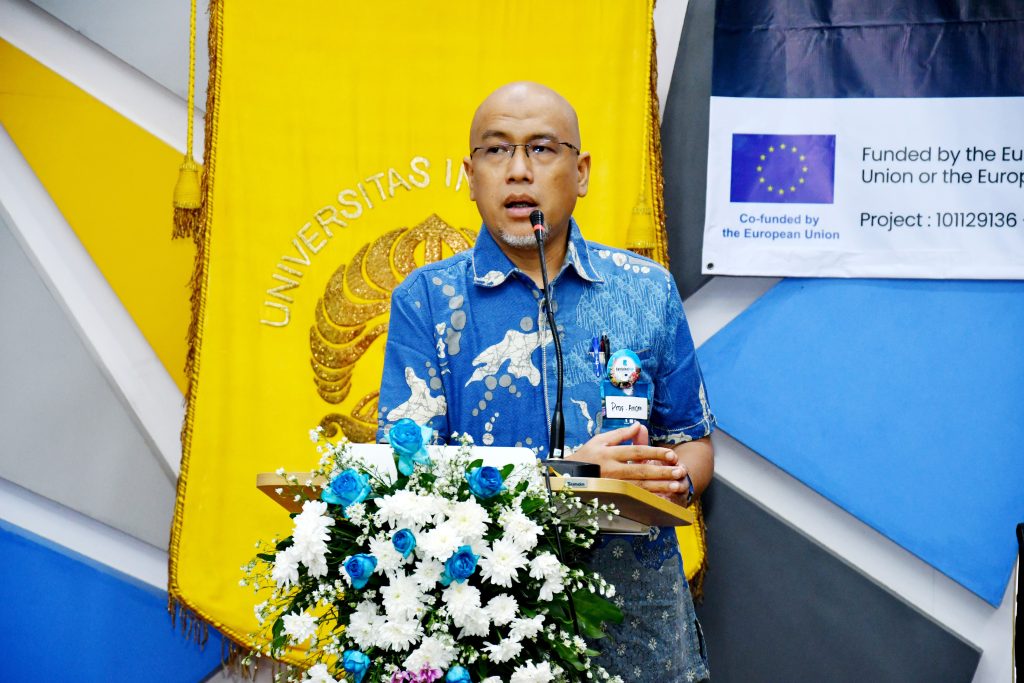
Prof. Anom Bowolaksono, Ph.D. (Ketua Departemen Biologi FMIPA UI)
Prof. Anom Bowolaksono, Ph.D., Head of the Department of Biology at FMIPA UI, explained that the Indonesian people need to understand and recognize the importance of the sea as a unifying territory of Indonesia. As reflected in the thoughts of Prof. Mochtar Kusumaatmadja and his legacy of Indonesian maritime thinking, he made a valuable contribution to the understanding of the Exclusive Economic Zone (EEZ), which has now become an international standard with wide-reaching benefits.
Prof. Anom believes that this insight should be utilized as best as possible by the entire society, especially by the academic community of the Department of Biology, FMIPA UI.
"At present, we should be able to make the best use of this knowledge. The Department of Biology, in particular, needs to broaden its perspective on the rapid development of science, including the vast potential of our oceans," said Prof. Anom.
Collaboration with European institutions such as Erasmus, according to him, can open up opportunities to build regional networks in the development of marine potential.
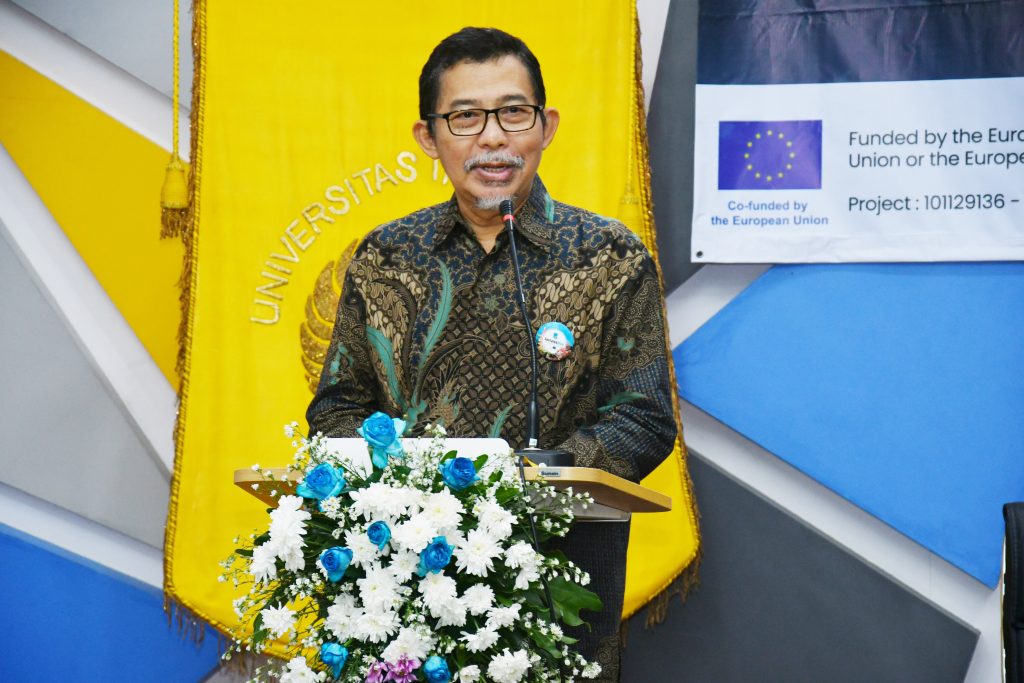
Meanwhile, the SustainaBlue Center Project Manager at Universitas Indonesia, Dr. rer. nat. Mufti Petala Patria, M.Sc., stated that SustainaBlue upholds the principle of sustainability, which means not only focusing on economic growth but also preserving the long-term health of marine ecosystems. This effort includes sustainable marine resource management, capacity building for coastal communities to increase the added value of marine products, development of relevant curricula, community service activities, and raising public awareness about the importance of protecting marine ecosystems.1
"Hopefully, this SustainaBlue program can be beneficial for all of us and coastal communities, so that we can further empower and improve the standard of living of fishermen, coastal communities, and develop the knowledge we gain at FMIPA UI," said Dr. Mufti.
In order to maximize its role in supporting the sustainability of the blue economy and green transition, SustainaBlue is currently being prepared by the Department of Biology to be developed into a study center under the auspices of the FMIPA UI Special Work Unit. Later, SustainaBlue as a study center will run various activity programs in the form of Research and Development, Community Service, Education and Training, Advocacy and Awareness, Collaboration and Networking, and Innovation Development.
The hybrid event was attended by 163 participants from various professional backgrounds, ranging from academics, research institutions, local authorities, and business sectors engaged in the Blue Economy sector, media, and the Gunung Salak Art and Culture Lovers Community. The event was also enlivened by the Directorate General of Plantations of the Ministry of Agriculture of the Republic of Indonesia.
News source : https://sci.ui.ac.id/
